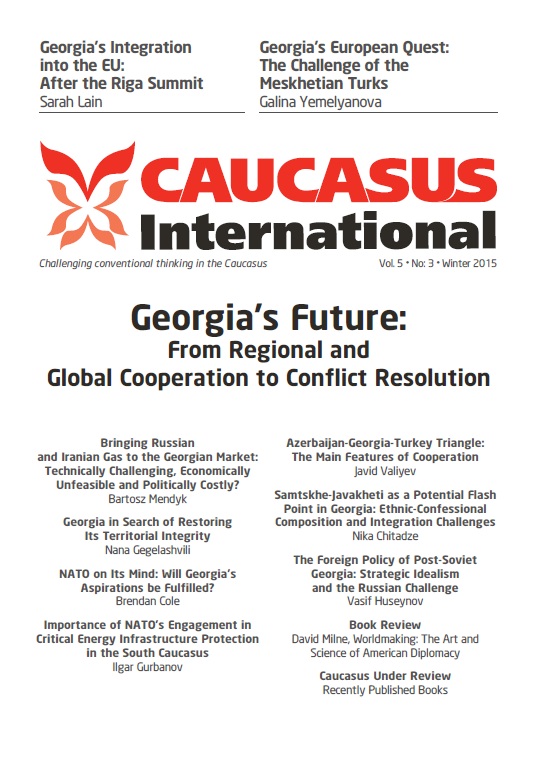Georgia’s European Quest: The Challenge of the Meskhetian Turks
The article deals with the Meskhetian Turks (Ahiska Turks), who in 1944 were deported by Stalin from the Meskheti region of Georgia to Central Asia. They have never been able to return to their ancestral land, the Meskheti area of the present-day Samtskhe-Javakheti region in Georgia. The paper analyzes Tbilisi’s ambivalent policy towards Meskhetian Turks and how that relates to Georgia’s European aspirations. The author argues that Tbilisi’s commitment to the repatriation of the Meskhetian Turks is disingenuous, and that the government has used this issue to further its European quest. Georgia’s resistance to the Meskhetian Turks’ resettlement stems from a number of factors, including: its Georgian-focused nation-building project, which is not welcoming towards ethnic minorities; concerns about the reaction of the majority-Armenian population in Samtskhe-Javakheti; its energy security considerations related to Javakheti’s location on the Baku-Tbilisi-Ceyhan oil pipeline route; and its territorial integrity fears, especially in the light of its de facto loss of Abkhazia and South Ossetia. The paper also examines the factors behind the survival of Meskhetian Turks as a distinct ethnic group despite their geographic dispersal across Eurasia and the wider world.
Latest news
- 03/17/2020 Call for Submission: “Non-Alignment Movement and Its Perspective in International Affairs”. Deadline: 1 July 2020 2626 views
Popular articles
- 02/24/2020 The Role of Irredentism in Russia’s Foreign Policy 2536 views
- 02/24/2020 Construction of sub-national identity vis-à-vis parent state: Gagauz case in Moldova 2218 views
- 02/24/2020 The Conflict in Ukraine - The Geopolitics of Separatism and Divergent Identities (Commentary) 2073 views
- 02/24/2020 The Role of the Soviet Past in Contemporary Georgia 2044 views





